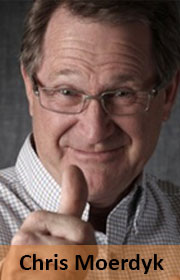
MultiChoice “cannot speak for the poor” and “has no mandate from them”. It also can’t speak for consumers, from whom it makes “super profits”.
That’s the latest broadside directed against MultiChoice by the ministry of communications as the war of words between the Naspers-owned pay-television operator and communications minister Yunus Carrim shows no sign of abating.
The situation became inflamed at the weekend when MultiChoice took out full-page advertisements in Sunday newspapers accusing Carrim of advancing the “narrow commercial interests” of “certain” broadcasters, in a clear reference to e.tv.
E.tv and MultiChoice are engaged in a high-stakes battle over whether the set-top boxes that consumers will need to watch digital television when the country switches off analogue broadcasts should contain a control system based on encryption technology. Carrim had been trying to reach a compromise agreement between the warring parties, but that now appears impossible.
Carrim accused MultiChoice of making claims in its ads that were “astonishingly inaccurate” and said that they served to “substantially weaken the case of those opposed to the government’s policy”.
He also labelled MultiChoice a bullying monopoly.
On Wednesday, MultiChoice upped the ante, accusing Carrim of not telling the truth when he claimed that the company and its partners were misrepresenting the situation. It said it was “extremely disappointed at the response to date” and urged him to put the interests of consumers and the poor first.
“MultiChoice cannot speak for the poor,” Carrim’s spokesman, Siya Qoza, said on Thursday. “It has no mandate from them. It is the poor, after all, who are excluded from watching MultiChoice, including major sports events, over which it has exclusive control.”
Qoza added that MultiChoice also cannot speak for consumers “from whom it makes its super profits”.
“If it cares so much for consumers, why does it charge so much for its services and exclude the poor?”
Qoza says MultiChoice has 98% of the pay-TV market in South Africa and “fears competition”.
“It is this that explains its position and its sudden ‘concern’ about the plight of the consumers and even the poor. Its representatives have been extremely aggressive in the negotiation process and want to take part to the extent that they get their way,” he says.
“Many emerging black manufacturers support set-top box control. Others, who don’t, have decided to accept the current government policy,” he adds.
The National Association of Manufacturers in Electronic Components and and the Association of Community Television South Africa, which were signatories with MultiChoice to the newspaper ads, are “dependent on DStv to differing degrees”. MultiChoice owns DStv.
Qoza says there is “nothing unique” about government’s policy on set-top box control. “At least 15 other countries are using a set-top box system similar to that in our policy, even if it’s not set out in government policy in those countries. Unlike other African countries using a similar system, we have it in government policy because South Africa has a local electronics manufacturing sector we have to protect and we provide a subsidy for the indigent.”
Set-top box control has been cabinet policy since 2008, Qoza adds. “It was cabinet that decided on the current policy on 4 December 2013. It was not minister Carrim’s personal choice, as MultiChoice well knows. It’s an insult to suggest that other cabinet members blindly followed minister Carrim like sheep. MultiChoice’s personal attacks on the minister are really a sign of its desperation.
“The policy is consistent with the ANC’s Mangaung resolutions and other government policies, and will benefit the poor and disadvantaged, who will not be able to afford new digital televisions. It will also, over time, contribute to lowering the cost of pay TV for consumers,” he says.
Qoza says that despite “MultiChoice’s behaviour, the doors of the facilitation team remain open”.
“But are they serious about negotiating a consensus? Until now they have not been,” he says. — (c) 2014 NewsCentral Media




